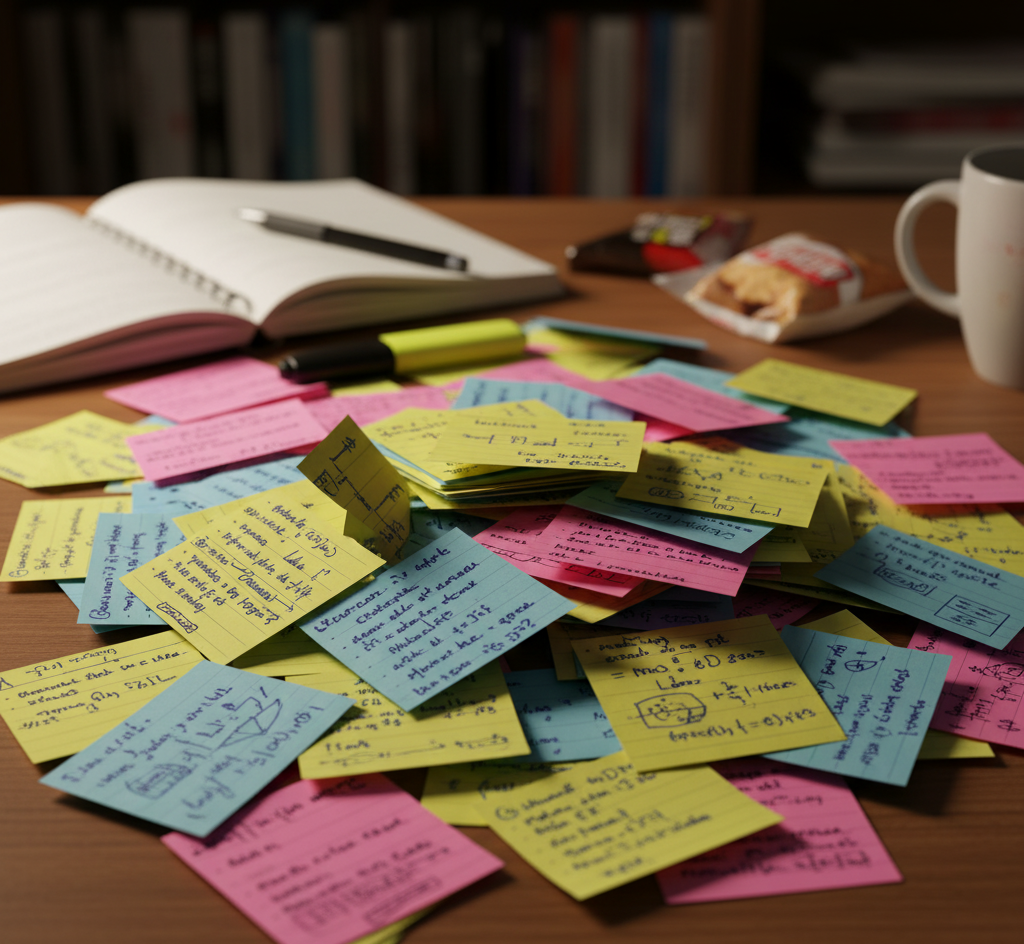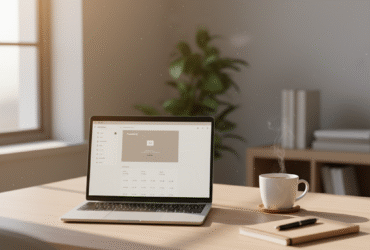Have you ever stacked a pile of flashcards on your desk, convinced this was the key to finally mastering a subject—only to abandon them weeks later, buried under other half-finished systems? I know the feeling. Flashcards promise structure, but in practice, they can become one more thing to maintain instead of a tool that fuels real progress.
In my journey as a lifelong learner, I discovered that flashcards weren’t giving me the long-term results I wanted. The good news? There are better ways to learn deeply and efficiently. In fact, this article builds on insights from Best Tools to Learn Anything Faster (my previous post), where I explored note-taking apps, focus boosters, and AI helpers that actually speed up learning.
Here, I’ll share why I stopped using flashcards, what I replaced them with, and how you can build a smarter system that supports focus, clarity, and flow.
The Problem with Flashcards

Flashcards sound simple: question on one side, answer on the other. But simplicity doesn’t always equal effectiveness.
Here’s where flashcards often fall short:
- They encourage memorization, not understanding. You might remember terms, but struggle to apply them.
- They demand constant upkeep. Creating, sorting, and reviewing cards can feel like busywork.
- They don’t always connect ideas. Learning thrives on seeing patterns, not just isolated facts.
I found myself spending more time managing cards than actually internalizing knowledge. Eventually, I realized: if a tool makes learning feel heavier instead of lighter, it’s not the right fit.
What I Use Instead of Flashcards
Once I stepped back, I experimented with other tools that matched the way I think and create. These gave me faster results with less friction.
1. Smart Note-Taking Systems
Instead of juggling hundreds of flashcards, I started building a “second brain” using tools like Notion and Obsidian.
- Notion: Perfect for tracking what I’m reading and capturing takeaways.
- Obsidian: Links ideas together so I can see connections across topics.
Key takeaway: A living note system grows with you. Unlike flashcards, notes create a network of meaning, not just a deck of answers.
2. Active Recall with a Twist

Active recall still matters—I just don’t need flashcards to do it.
- I ask myself questions while journaling about what I read.
- I teach concepts out loud, as if explaining them to a friend.
- I use apps like Anki sparingly—for tough concepts that truly need spaced repetition.
Key takeaway: You can practice recall through conversation, writing, or teaching—not just index cards.
3. Reflection Over Repetition
With flashcards, I’d often repeat facts until they stuck—then promptly forget them a week later. Now I use weekly reflections to review what I’ve learned.
- I jot down big insights in a digital journal.
- I connect new lessons to old ones, spotting patterns.
- I ask: How can I apply this idea today?
Key takeaway: Reflection transforms knowledge from trivia into wisdom.
Why This Shift Works Better

Switching away from flashcards wasn’t about abandoning discipline—it was about choosing smarter tools for real growth.
- Less clutter: No more stacks of cards or endless decks.
- More meaning: Ideas connect naturally, instead of living in isolation.
- Better retention: Teaching and reflecting make concepts stick longer than rote memorization.
Think of it this way: flashcards are like memorizing words in a foreign language without ever speaking the sentences. Other tools help you build the full conversation.
When Flashcards Still Make Sense
To be fair, flashcards aren’t useless. They can shine in very specific contexts:
- Memorizing vocabulary for a new language.
- Studying medical or technical terms that require precision.
- Preparing for standardized tests with lots of fact-based recall.
If your goal is quick recall of raw facts, flashcards work. But if you want deeper understanding, you’ll need something more holistic.
Building Your Smarter Learning System
Here’s a simple framework you can try this week:
- Capture: Use Notion or Obsidian to collect new ideas.
- Review: Practice active recall through journaling or teaching.
- Reflect: Spend 5 minutes each week connecting new insights to old ones.
- Apply: Look for one way to use your learning in real life.
This cycle takes less time than building flashcard decks—and delivers lasting results.
Conclusion

I stopped using flashcards not because they’re bad, but because they didn’t align with how real learning sticks for me. By shifting toward note-taking systems, active recall through writing, and weekly reflections, I’ve built a process that feels lighter, more meaningful, and far more effective.
The key takeaway: Tools should serve your growth, not burden it.
If you’re curious about building your own toolkit, I recommend starting with my post on Best Tools to Learn Anything Faster. Together, these approaches can help you create a system that feels less like cramming—and more like flow.
✨ Remember: Learning isn’t about speed alone. It’s about creating habits and tools that make knowledge last.




